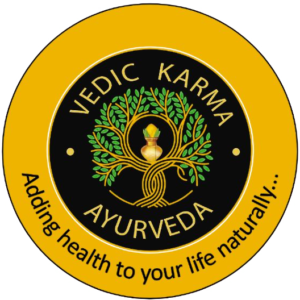Stress is Defined
As the pressure experienced by a person in response to life demands. In other words, Stress is process of adjusting to or dealing with circumstances that disrupt or threaten to disrupt a person physical or psychological functioning.
Stress is tension, strain or pressure from a situation that requires us to use, adapt or develop new coping skills.
Stressor is the stimuli proceeding or precipitating a change. I may be internal (fear, guilt) or external (trauma, peer pressure, etc.)
- We strive to bring out the best
- Beauty & glam can be perfect
- Brings out the best in you
- Live every moment beauty

Types of stress:
- Distress: Stress due to an excess of adaptive demands placed upon us. The demands are so great that they lead to bodily and mental damage. e.g. unexpected death of a loved one.
- Eustress: The optimal amount of stress, which helps to promote health and growth e.g. praise from a superior for hardworking.
Types of stressors:
Physiological stressor:
a. Chemical Agents
b. Physical Agents
c. Infectious Agents
d. Nutrition Imbalances
e. Genetic or Immune Disorder
Psychological stressor:
a. Accidents can cause stress to both victim and the person who caused the loss.
b. Stressful experiences from family members and friends.
c. Murder, rape, terrorist attacks.
d. Events that we see in TV such as war, earthquake, violence.
e. Life Events
f. Rapid changes; economical or technological
Indicators of Stress:
a. Physiological Indicators: results from activation of sympathetic and neuro-endocrine systems of body. Such as:
1. Pupil dilate to increase visual perception.
2. Sweat production increases.
3. Heart rate and cardiac output increases
4. Skin becomes pale due to peripheral blood vessel constriction.
5. Mouth may be dry.
6. Urine output changes happens, either it increases or decreases.
b. Psychological Indicators: the manifestations include following:
- Anxiety: state of mental uneasiness, apprehension, dread or feeling of helplessness. It can be experienced at conscious, subconscious or unconscious level.
- Fear: It is an emotion of apprehension aroused by impending danger, pain and threat.
- Depression: It is an extreme feeling of sadness, despair, lock of worth or emptiness.
- Unconscious Ego Defense Mechanism: It is a psychological adaptive mechanism developing as personality attempts to defend itself and allay inner tensions.
c. Cognitive Indicators: the manifestations include following:
- Problem Solving: Person assesses the situation and then analyzes it, choose alternatives, carries out selected alternatives.
- Structuring: It is an arrangement/ manipulation of situation so that threatening evidence do not occur.
- Self-Control: Assuming a manner and facial expression that conveys a sense of being in control.
- Suppression: Willfully putting a thought or feeling out of mind.
- Day Dreaming: Unfulfilled wishes and desires are imagined as fulfilled or a threatening experience is reworked or replayed so that it ends differently from reality.
Stress Management:
Stress can be managed by Ayurvedic Medications, Panchakarma Treatments, Meditation, Yogic Exercises along with following ABC of Stress
1. Ayurvedic Medicine: Rasayana Medicines: Rasayana medicines are known to have antioxidant, immunomodulator, antidepressant, anxiolytic, antiulcer activity and are proven effective on stress. Ashwagandha, Giloy, Shatavari, Jatamansi, Brahmi, Shankhapushpi, Jyotishmati, Tagara, Yashtimadu are the examples of single drugs working on stress
Here are few combinations:
- Medha Sagar Ras (Dootpapeshwar)
- Stresscom (Dabur)
- Brahmi Vati Swarna yukta (Baidyanath)
- Manasmitram Vatakam (Nagarjuna)
- Stresswin (Baidyanath)
- Stresscare (Himalaya)
2. Panchakarma Treatments: Shirodhara, Abhyanga Sweda, Nasya are the treatment of choice
3. Yoga: Streching Exercises, Uttanasan, Adhomukhashvasanam, Pashchimottanasana, Balasana, Shavasana, Pranayama(Bhastrika, Kapalbhati. Bahya-Pranayama, Agnisar, Ujjayee, Anulom Vilom, Bhramari)
4. ABC of Stress Management:
- Always take time for yourself at least 30 min / Day.
- Be aware of your stress meter, know when to step back and cool down.
- Concentrate on controlling your own situation, without controlling anybody else.
- Daily exercise will burn off stress chemicals.
- Eat lots of fresh fruit, veggies, bread and water, give your body the best for it to perform at its best.
- Forgive others, do not hold grudges and be tolerant, not everyone is capable as you.
Gain perspective on things, how important is the issue?
- Hugs, kisses and laughter, have fun and don’t be afraid to share your feelings with others.
- Identify stressors and plan to deal with them better next time.
- Judge your own performance realistically. Don’t set your goal out of your own reach.
- Keep a positive attitude, your outlook will influence outcomes and way others treat you.
- Limit alcohol, drugs and other stimulants, they affect your perception and behavior.
- Manage money well, seek advice and save at least 10% of what you earn.
- No is the word you need to learn to use without feeling guilty.
- Outdoor activities by yourself, or with friends and families, can be great way to relax.
- Play your favorite music rather than watching TV.
- Quit Smoking, it is stressing your body daily, not to mention killing you too.
- Relationships: nurture and enjoy them, learn to listen more and talk less.
- Sleep well, with firm mattress and supportive pillow. Have ventilation of air in room.
- Treat yourself once a week with a massage, dinner out and the movies.
- Understand things from the other person point of view.
- Verify information from the source before exploding.
- Worry less, it really doesn’t get things completed better or quicker.
- Yearly goal setting, plan what you want to achieve based on your priorities in your career, relationships etc.
- Zest for life: each day is a gift, smile and be thankful that you are the part of the bigger picture.

